Meet Ecaterina Vidrascu
Estimated reading time: 10 minutes
In the latest instalment of our blog series we interview Ecaterina Vidrascu to find out more about how she got into Data Science, what brought her to Aberdeen, the things that you might find her doing outside of work and what advice she has for people interested in learning more about Data Science.
We are very lucky to have Ecaterina on the team helping to create our very first voice user interface for Amazon Alexa smart speakers. As you’ll see from the discussion below, she’s a hugely talented data scientist, with a creative side and a wonderfully open attitude to learning and life.
About Our Blog
We live in an ageing society. But what does that really mean?
In the next 20 years the balance of young and old will shift to the point where there will be one elderly person for every two people of working age. The challenge this presents is two-fold, a reduction in family members able to provide support and a smaller pool of professional carers.
TL Tech is a Smart Homes Solutions provider with a difference. We help people get the best out of smart home technologies and create unique home environments to meet their needs and budget. Our vision is to “create a home that cares for you as you age”.
Smart home technologies have the power to transform lives, especially for the vulnerable in our society. This blog series will be looking to showcase the opportunities, find out more about the people working in this field and how we can create a world where “smart meets kind ®”.
The Interview
How did you get into Data Science?
This was not quite a straightforward decision I made; I would say it took a few events to happen for me to get into Data Science.
I always liked numbers and maths, and then in high school I was quite good at programming and economics. Upon finishing school, I was successful in securing a study grant at the Stockholm School of Economics in Riga. I also secure financed places at the leading universities in Moldova in programming and economics. That is when I took the difficult decision to move abroad to Latvia and completed my studies there in Economics and Finance. My plan back then was to maybe return to computer science, and so I did when I took up my first job as a Support Analyst where I spent two years.
Another thing that made me take up Data Science are the courses that I liked the most in my undergraduate degree: statistics and econometrics. When I moved to Scotland a bit over a year ago, I was determined to take on a new challenge (like moving to another country was not enough!) and pursue a master’s degree. After carefully analysing my options I opted for an online MSc in Computer Science with Data Analytics to do part time together with taking on a new job as a Data Analyst at an energy consultancy company.
Unfortunately (or better said now fortunately), my expectations for the degree were not quite met, so that’s when I took the hard and brave decision to drop out from that course and enrolled in a full-time MSc in Data Science at Robert Gordon University. And honestly, this was the best decision I made.

The DataLab offered me a great opportunity to complete my postgraduate studies in Aberdeen by offering a generous scholarship which covered my tuition fee. I met a lot of great people and studied a lot as I pushed my boundaries to grow and learn more. My favourite modules were Data Mining – where I learned so much about Machine Learning in R, Data Warehousing – where I build a database myself and used SQL, and Advanced Data Science – the course where my learning curve was very steep as I built a project on image Analysis in Python.
What do you like to do outside of work?
There are quite a few things I like doing outside of work. One of them is hiking and exploring Scotland. I like visiting new places during weekends with my boyfriend and taking a break from the city while being closer to the nature. The Scottish landscapes are spectacular and so different: lochs, mountains, beaches, forests, and sea. During the last year we have managed to see so many places: Glasgow, Edinburgh, Aberdeen, Inverness, Ullapool, Stonehaven, Crail, Montrose, Banchory, Aviemore.
Apart from these we saw so many picturesque places, some that even the locals might have not visited yet: Bow Fiddle Rock, Dunnottar Castle, Slains Castle, Scotland’s Secret Bunker, Peterhead Prison, Edinburgh Castle, Loch Muick, Balmoral Pyramid, Loch Ness, St Cyrus Waterfall, Balmedie Beach, Arbroath Cliffs. Every time when I find a new place, I add it to our to-visit list and with every hiking trip I appreciate more a more the beauty of Scotland.

Apart from Scotland I’ve had the chance to travel and do some hiking in Spain (Montserrat, Sant Jeroni – 1236m), Armenia (Teghenis – 2851m, Tsaghkadzor) and my home country Moldova.
Another hobby that I picked up around a year ago is nail art – I started to learn on my own how to do professional quality nails at home. Currently my nail collection includes over 70 gel polish bottles, nail art decals, gemstones, and various decorations. Over time I decided to record some tips and tricks and I currently manage a small blog under the name Naïve Nails (@naive__nails) on Instagram. Funnily enough, while looking for an original name for my blog, I remembered about the Naïve Bayes algorithm from my MSc course, and that is where I got the name inspiration.
Apart from that, I like photography and digital art – all that concerns editing pictures, creating filters, and drawing digitally. However, there are only 24 hours in a day, so there is not always time to expand on many of my interests.
If you could go on holiday anywhere right now, where would it be any why?
Living abroad for almost six years in three different countries my answer is rather obvious. I would really love to go home to Moldova and visit my parents. Most probably that is the place I would be now if not for the current world situation, the place of warm and sunny days, tasty food, homemade wine.
Apart from that, I would like to go to Portugal, it has been on my list for quite some time. To see the ocean, to wander on the warm streets and admire the architecture. Another reason is of course their language, I love Portuguese even though I barely speak any words.
Are you a coffee or a tea person?
That is a difficult decision to make for me, so I will say both. When I started my MSc studies at Robert Gordon University, early morning coffee from Costa with a view soon became a morning ritual. It was something I was looking forward to everyday with my friend when arriving early to the lectures.

My favourite tea is sea buckthorn tea with homemade honey from my parents, looking now forward to when I can go back home and enjoy it.
How long have you been blogging for? What do you like to write about?
I started blogging on LinkedIn when I started my MSc studies at RGU thinking that I will share with my connections some of the things I learned and learn things outside the university program. I saw a community of people sharing their knowledge under the hashtag #100daysofcode and I wanted to be a part of this community. The difference was that I wanted my posts to be more specific to my field, and that’s how I started posting my journey under the hashtag #100DaysOfDataScience (which as it turned out took me approximately around a year soon).

Little did I know back then that this was actually a huge commitment, and I underestimated the time and effort that go into posting regular quality Data Science content, especially when combined with a full-time MSc and a part-time job.
I took some breaks from posting from time to time while studying from my exams. With time more and more people asked my advice about courses to take, what to study and where to look for learning resources. I am always happy to share and give advice when I know something. I did not expect so much engagement to my posts when I was coming early at 07:30AM to university to write a LinkedIn post before the lectures started back when I started.
Do you have a favourite author, blogger or podcast?
One of the blogs I read very often and learn a lot of great new things is Towards Data Science from Medium. I truly believe it is a nice place to find interesting things, tips, and project ideas to support your Data Science journey.
My favourite Data Science podcast is DataFramed by DataCamp by Hugo Bowne-Anderson. The podcast has many different guests and they cover topics ranging from getting the first job in Data Science to Conversational AI and Chatbots. Another podcast that I picked up recently is VUX World which is all about conversational AI and voice assistants.
What advice would you give to people wanting to get started in Data Science?
Data Science is a very large field, there are so many possibilities and so many jobs that all sit under Data Science. I would recommend to first have a general understanding on each of the possible paths (Business Intelligence Analyst, Data Analyst, Database Architect, Data Scientist, Data Engineer etc) and try to choose and focus on your specific niche.
Another thing that is important is to understand that Data Science is not just Python and R, and real-world data is not clean, and most probably not consistent or stored appropriately. What I mean by this is to understand that the goal should not be use a specific algorithm, method, or software, but rather solving the given problem in the most efficient manner.
And lastly, I would like to say that critical thinking is one the most valuable skills for a Data Scientist. To put this in context, I was working with my team on a project that included GDP figures for different countries around the world. We almost had the project done when I noticed that some of the GDP figures were very low, almost close to zero. After rechecking the dataset and the exploratory data analysis we found out that there were some spurious data and we had to replace the GDP values with another source. This proves that things need to be analysed in context, and as a Data Scientist you should always understand what you are working on and what the data is about.

Key Takeaways
It has been great finding out more about Ecaterina and the things that make her unique. For us it has been a great experience to welcome a student to the team. Especially someone with a real depth of experience and such a proactive approach to problem solving and taking on new tasks. We are looking forward to having Ecaterina share some further updates with you as we progress the work on the Alexa voice skill. If you have any questions for Ecaterina about this or her Data Science studies, she would love to chat to you on her LinkedIn blog.


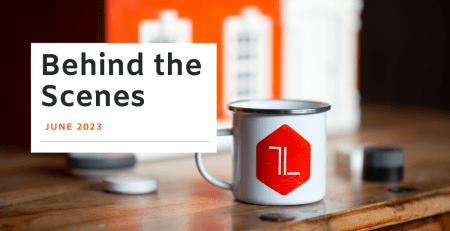
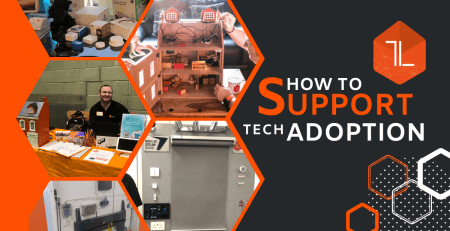
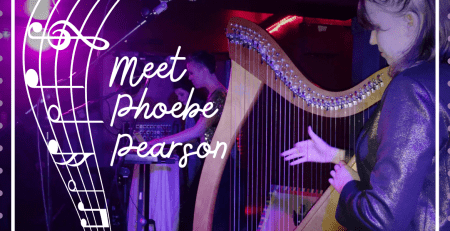
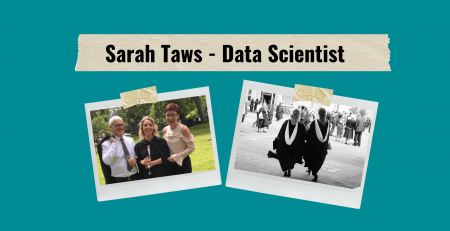

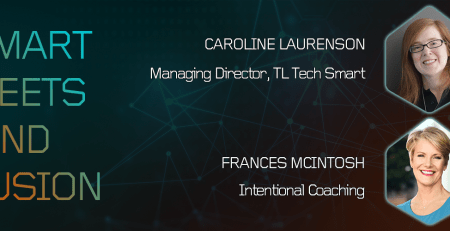
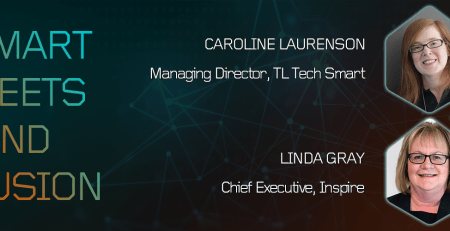
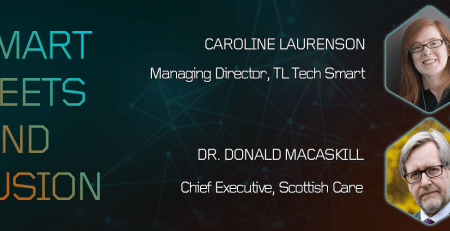
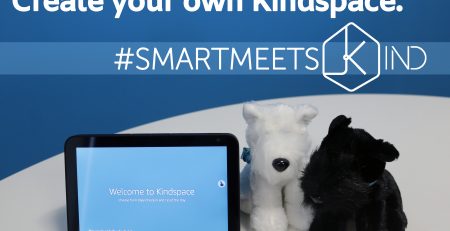
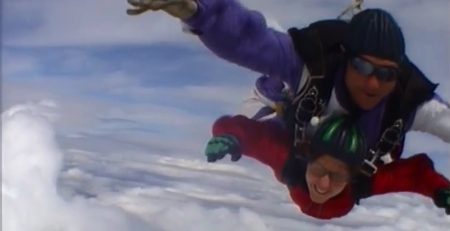
Leave a Reply